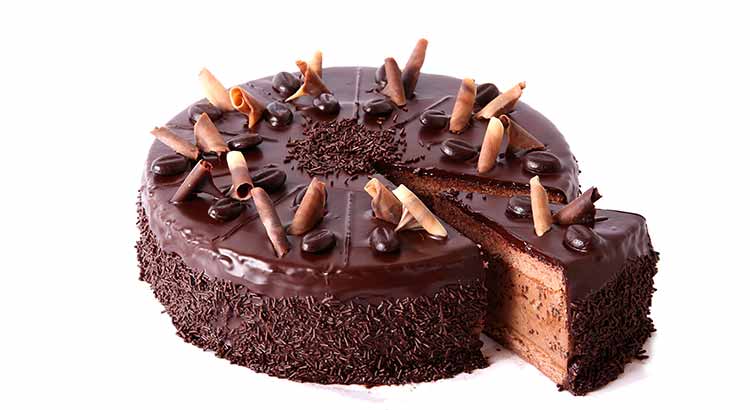! Whether it’s a luscious chocolate cake, a fluffy vanilla sponge, or a fruity delight, cake has become a staple in celebrations and everyday indulgence. But have you ever wondered about the origins of cake? Who had the brilliant idea to mix together flour, sugar, and other delightful ingredients to create this treat?
Cake was invented by innovative bakers and cooks throughout history. While there isn’t a single individual we can credit with its invention, it was the collective efforts of ancient civilizations like the Egyptians, Greeks, and Romans that gave rise to the concept of cake as we know it today.
In this article, we’ll uncover the mysteries surrounding the invention of cake. We’ll explore the different theories and ancient civilizations that played a role in its creation. From the sweet honey-filled bread of ancient Egypt to the refined baking techniques of the Greeks, we’ll trace the evolution of cake and how it spread to different corners of the world. So, get ready to satisfy your curiosity and discover the delightful origins of this beloved dessert.
When Was Cake Invented
Cake, one of the most beloved desserts around the world, has a long and fascinating history. While the exact origins of cake are somewhat unclear, evidence suggests that cakes have been enjoyed for thousands of years. The concept of cake can be traced back to ancient civilizations such as Egypt and Greece. The ancient Egyptians are believed to have been the first to create a form of cake-like bread, sweetened with honey and filled with fruits and nuts.
However, it was the Greeks who truly embraced the art of baking and developed more refined techniques. They introduced the use of butter, eggs, and leavening agents such as yeast to create lighter and fluffier cakes. These early cakes were often flavored with ingredients like spices, honey, and dried fruits. The Romans later adopted these Greek baking techniques and spread them throughout their empire.
The Middle Ages marked a significant shift in cake baking. During this time, the use of sweeteners such as sugar became more widespread, making cakes sweeter and more indulgent. The Crusaders, who traveled to the Middle East, brought back new ingredients like almonds and spices, which further enriched the flavors and textures of cakes. By the 17th century, cake baking had become a popular activity among households of the upper class, and various recipes and techniques were documented in cookbooks.
Where Was Cake Invented
Cake baking and consumption spread across different regions as trade and exploration expanded. While the exact location where cake was first invented is uncertain, it is safe to say that various cultures and civilizations contributed to its development. Ancient Egypt, with its honey and fruit-filled bread, played a role in the early evolution of cake. The Greeks refined the art of baking and introduced ingredients like butter and eggs, enhancing the taste and texture of cakes.
The Romans further disseminated cake-making techniques throughout their empire, while the Middle Ages saw the use of sugar and the influence of spices from the Middle East. European countries such as France, Germany, and England also made significant contributions to cake baking. France, known for its delicate pastries, introduced the concept of layering cakes and elaborate decorations. Germany added their own touch with the creation of the famous Black Forest cake, made with cherries and whipped cream. And in England, the tradition of fruitcakes, often served during special occasions like weddings, emerged.
As explorers and colonizers set sail, they carried cake recipes and techniques to new lands. The Americas, for instance, adopted European baking traditions and added their own regional twists. Today, cake is enjoyed worldwide, with each culture infusing its unique flavors and styles into this beloved dessert.
Who Invented Cake
The invention of cake cannot be attributed to a single individual or culture. Rather, it is the result of centuries of culinary evolution and the contributions of various civilizations. As mentioned earlier, the ancient Egyptians and Greeks played a significant role in the early development of cake-like breads. However, it was the Romans who refined the techniques and brought them to a wider audience.
Throughout history, different cultures and regions have put their own spin on cake recipes, adding local ingredients and flavors. The French, for example, are renowned for their delicate pastries, while the Germans have their rich and indulgent Black Forest cake. Each culture has contributed to the diverse range of cakes we enjoy today.
Why Was Cake Invented
The invention of cake was driven by a combination of practical and cultural factors. Initially, cakes served as a way to preserve and consume grains and fruits. By adding sweeteners and spices, people could extend the shelf life of these ingredients and create a delicious treat. Over time, cakes became associated with celebrations and special occasions, symbolizing joy and abundance.
The significance of cake in cultural and social contexts cannot be understated. It became a centerpiece of birthdays, weddings, and religious ceremonies. Cakes became a symbol of festivity, bringing people together to mark important milestones and share moments of happiness. Today, the tradition of celebrating with cake remains strong, and it continues to be an integral part of our lives.
Evolution of Birthday Cakes
The tradition of birthday cakes has evolved over time, and it has its roots in ancient civilizations. The Greeks were known to bake round or moon-shaped cakes and offer them as a tribute to Artemis, the goddess of the moon. The lit candles on these cakes symbolized the glowing moon. In the Middle Ages, birthday cakes became more elaborate and were adorned with intricate decorations.
During the 18th century, Germany introduced the concept of Kinderfest, a children’s birthday celebration where a sweetened bread-like cake was served. It was around this time that birthday cakes started to become more popular among the general population. As the Industrial Revolution brought advancements in baking technology and the availability of ingredients, cakes became more accessible to people of different social classes.
In the 19th century, the Victorian era in England marked a significant shift in birthday cake traditions. Elaborate cakes with multiple tiers, intricate designs, and decorative icing became fashionable. It was during this time that the concept of the modern birthday cake as we know it today started to take shape.
Blowing Out Birthday Candles on a Cake
Blowing out birthday candles has become a cherished ritual in birthday celebrations. The origin of this tradition can be traced back to ancient Greece. The Greeks believed that smoke carried their wishes and prayers to the gods. Therefore, they would place candles on their cakes and blow them out, sending their wishes into the air.
In modern times, blowing out birthday candles has taken on a more playful and celebratory meaning. It is often accompanied by singing the “Happy Birthday” song and making a wish. The person celebrating their birthday takes a deep breath, closes their eyes, and blows out the candles in one breath, hoping their wish will come true.
The number of candles on a birthday cake often represents the age of the person celebrating. It has become a fun tradition to see how many candles can fit on the cake without toppling over! While the practice of blowing out candles may vary slightly across cultures, the joy and excitement it brings remain universal.
Final Thoughts
In exploring the origins, traditions, and evolution of cake, it becomes clear that this beloved dessert holds a special place in our lives. Whether it’s a simple homemade cake shared with family or an elaborately decorated masterpiece for a special occasion, cake has the power to bring joy and create lasting memories.
The history of cake is a testament to human creativity and ingenuity. It is fascinating to see how different cultures and civilizations have contributed to the development of this delectable treat. From the ancient Egyptians and Greeks to the Romans, Europeans, and beyond, each culture has added its own flavors, techniques, and traditions, resulting in the diverse range of cakes we enjoy today.
The rituals associated with cake, such as blowing out birthday candles and making wishes, add an element of fun and excitement to our celebrations. They create a sense of anticipation and shared joy. Whether you’re a child eagerly waiting to blow out the candles or an adult savoring each bite, cake has a way of making us feel special and bringing people together.
So, the next time you indulge in a slice of cake, take a moment to appreciate the rich history and traditions that have shaped this dessert. From its humble beginnings as a bread-like concoction to the elaborate creations of today, cake continues to evolve and delight us. It reminds us to celebrate life’s moments, big and small, and to savor the sweetness that it brings. So go ahead, enjoy that slice of cake, and let it be a source of happiness and connection in your life.
FAQ
Q: Is cake a universal dessert enjoyed by all cultures?
A: Cake has certainly gained popularity worldwide, but its exact form and variations can vary across cultures. While many cultures have their own versions of cake, some may have traditional desserts that are similar to cake but differ in ingredients or preparation methods. For example, in Japan, there is a dessert called mochi that has a chewy texture and is made from glutinous rice. It is often served on special occasions, similar to how cake is enjoyed in other parts of the world. So while cake may not be universally identical, the joy and celebration associated with sweet treats are shared across cultures.
Q: Can people with dietary restrictions or allergies still enjoy cake?
A: Absolutely! With the increasing awareness of dietary restrictions and allergies, bakers and food manufacturers have come up with creative solutions to cater to different needs. Today, you can find a variety of cake options that are suitable for individuals with dietary restrictions or allergies. For those who are gluten-intolerant, gluten-free cakes made with alternative flours like almond flour or rice flour are available. Similarly, there are dairy-free cakes made without milk or butter for those with lactose intolerance. Vegan cakes, which are free from any animal products, are also popular among those following a plant-based diet. So rest assured, there is a cake out there for everyone to enjoy!
Q: Can you provide some tips for baking a delicious homemade cake?
A: Certainly! Baking a homemade cake can be a delightful experience. Here are a few tips to help you create a delicious cake:
- Follow the recipe: Pay attention to the measurements and instructions in the recipe. Baking is a science, and precise measurements can make a difference in the final result.
- Use quality ingredients: The quality of ingredients can greatly impact the taste and texture of your cake. Fresh eggs, good quality butter, and pure vanilla extract can enhance the flavor.
- Properly prepare the pans: Grease and flour the baking pans to prevent the cake from sticking. You can also line the pans with parchment paper for easy removal.
- Don’t overmix the batter: Overmixing can lead to a dense and tough cake. Mix until the ingredients are just combined to maintain a tender crumb.
- Allow the cake to cool completely: It’s important to let the cake cool completely before frosting or decorating to avoid melting the frosting or causing it to slide off.
Remember, practice makes perfect, so don’t be discouraged if your first attempt isn’t flawless. Enjoy the process, have fun experimenting with flavors and decorations, and savor the delicious results!

